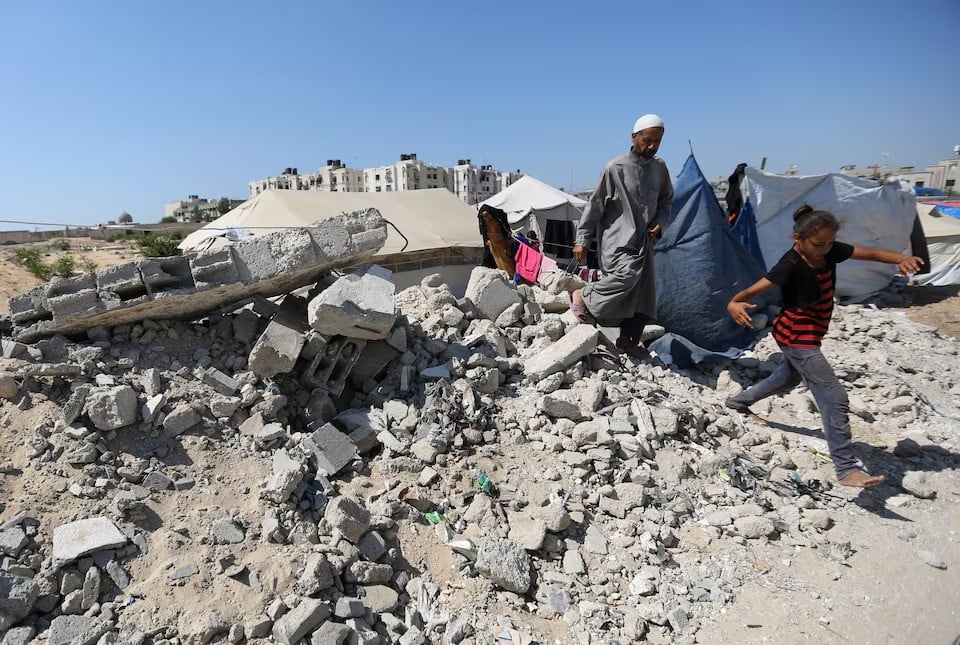DOHA:
Ceasefire negotiations in Doha aimed at halting the ongoing conflict between Israel and Hamas were paused on Friday, with plans to resume talks next week. Despite progress, US President Joe Biden indicated that a final agreement had not yet been reached, stating, “we’re not there yet.”
In a joint statement, the US, Qatar, and Egypt announced that a new US-proposed framework had been presented, building on the points agreed upon over the past week and narrowing the gaps that could enable a swift resolution. Mediators plan to continue working on the proposal in the coming days, emphasising that the current approach could save lives, alleviate the situation in Gaza, and reduce regional tensions.
These talks, the latest in a series of negotiations over several months, involve Israel and international mediators, with Hamas being kept informed of the developments. A Hamas official, Izzat al-Rishq, expressed concern, alleging that Israel had not adhered to previous agreements.
Biden noted that the discussions had brought the parties “much, much closer” to an agreement but remained cautious, not wanting to “jinx” the outcome. Key issues include Israel’s demand that Hamas be dismantled and Hamas’s insistence on a permanent ceasefire. Additional complications involve the sequencing of a deal, the release of Palestinian prisoners, border control between Gaza and Egypt, and the movement of Palestinians within Gaza.
A senior official from the Biden administration described the Doha talks as the most productive in months, with plans to continue negotiations in Cairo next week. The official highlighted a bridging proposal introduced by Washington that addressed most of the disagreements.
Israeli negotiators were set to return home on Friday, with Prime Minister Benjamin Netanyahu expected to meet US Secretary of State Antony Blinken on Monday. Blinken will visit Israel to further diplomatic efforts aimed at securing a ceasefire and the release of hostages.
On the ground, Israeli forces intensified their operations in Gaza, targeting areas previously designated as civilian safe zones, alleging they were being used by Hamas to launch attacks. The United Nations called for a temporary halt in fighting to allow for a polio vaccination campaign as disease spreads among the displaced population.
The conflict, which began on October 7 with a Hamas attack on Israel, has resulted in significant casualties, with over 40,000 Palestinians and 17,000 Hamas fighters killed according to Palestinian health officials. Israel’s response has left much of Gaza in ruins.
Concerns about a broader regional conflict persist, with Iran threatening retaliation after the assassination of Hamas leader Ismail Haniyeh in Tehran. The US has bolstered its military presence in the region to support Israel and deter potential escalations. Washington has warned Iran against launching a significant missile attack, highlighting the catastrophic consequences such an action could provoke.
In a statement late on Thursday, Hamas politburo member Hossam Badran said Israel’s continuing operations were an obstacle to progress on a ceasefire.
The Israeli delegation included spy chief David Barnea, head of the domestic security service Ronen Bar and the military’s hostages chief Nitzan Alon, defence officials said.
The White House sent CIA Director Bill Burns and US Middle East envoy Brett McGurk. Qatari Prime Minister Sheikh Mohammed bin Abdulrahman Al Thani and Egypt’s intelligence chief Abbas Kamel were also taking part.
Negotiations took place in the shadow of a feared regional escalation, with Iran threatening to retaliate against Israel after the assassination of Hamas leader Ismail Haniyeh in Tehran on July 31.
With US warships, submarines and warplanes dispatched to the region to defend Israel and deter potential attackers, Washington hopes a ceasefire agreement in Gaza can defuse the risk of a wider war.
The senior Biden administration official said Washington warned Tehran against conducting a major missile attack against Israel, “because the consequences could be quite cataclysmic, particularly for Iran.”







